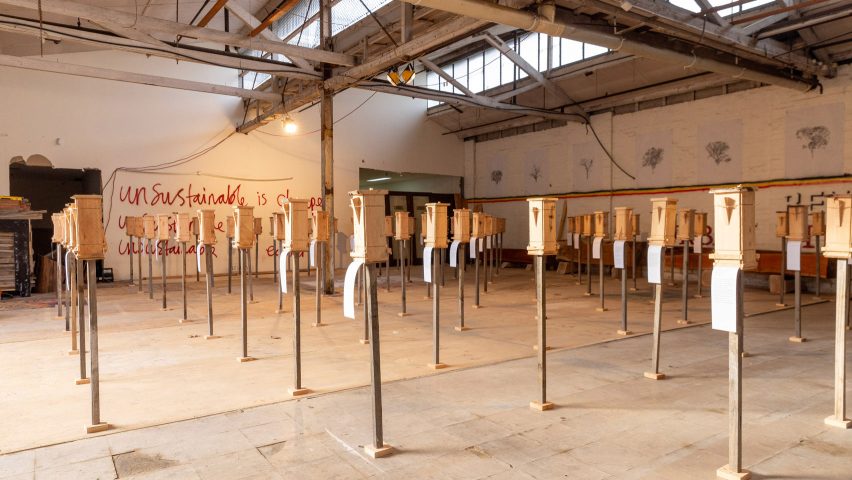
Seven key installations and exhibitions from Melbourne Design Week 2024
Sculptures grown from arctic seawater are among the projects in this roundup of seven of the most intriguing exhibitions from Melbourne Design Week.
Also among the pieces on show at the event, which is Australia's largest annual design festival, was a vending machine that sells snacks made from insects and pet furniture that serves multiple functions.
Now in its eighth edition, this year's Melbourne Design Week gathered over 300 exhibitions, displays, symposiums and talks throughout the city of Melbourne and the region of Victoria State, exploring the theme of Design the World You Want.
Read on for the seven key installations and exhibitions from this year's Melbourne Design Week:
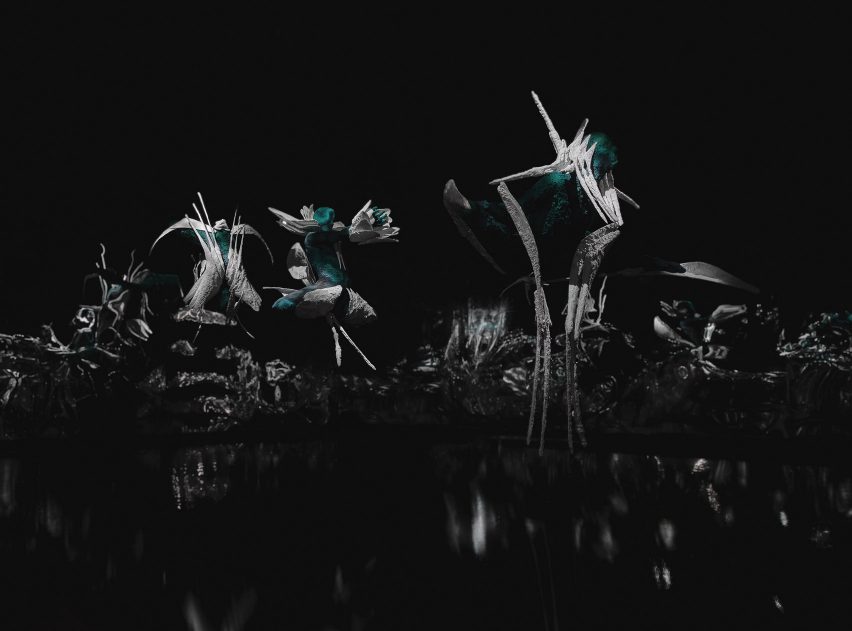
Abyssicide: Garments for drowning in, by Sruli Recht and RMIT Architecture Tectonic Formation Lab
The Abyssicide installation comprised three suspended sculptures grown from water with the help of computational design and robotic fabrication.
Through the manipulation of electrified seawater combined with negatively charged surfaces, calcium and carbonate molecules were attached to objects.
The process employed a biomimetic technique that mimics how coral forms its skeleton, with the actual growth period lasting for over a year.
"By mimicking the way coral built its skeletal structure I figured out a way to straight up turn arctic seawater into solid objects," explained designer Sruli Recht.
"In the throes of a climate crisis, Abyssicide envisions a future where our protagonists press the garments into the skin, submerge, and become one with the sea – and as the ocean levels rise, the garments for drowning in grow into a coral, layer by layer, up and around the body," he continued.
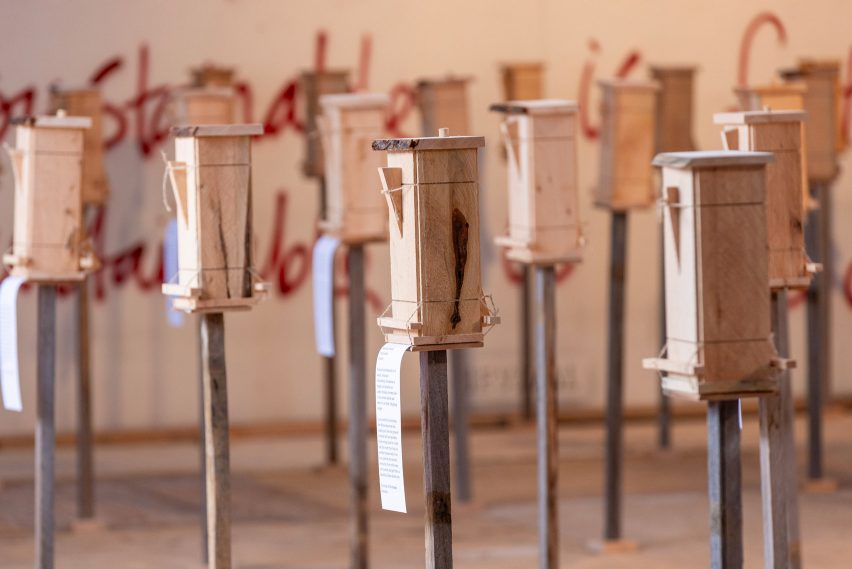
100 Circles, by Revival Projects
Material consultancy Revival Projects created 100 timber urns from five large Cypress Macrocarpa trees. These were salvaged from Box Hill Cemetery in Melbourne, as they had grown close to the graves and become unsafe.
The making of the urns involved no glue or mechanical fixings. A seed of a Golden Wattle, Australia's national tree, is housed within the lid of each urn, allowing a new tree to grow out of it when the buried urn completely decomposes along with the cremated ashes inside.
Each urn is provided with half a cup of activated charcoal to help neutralise the PH levels of the cremated remains.
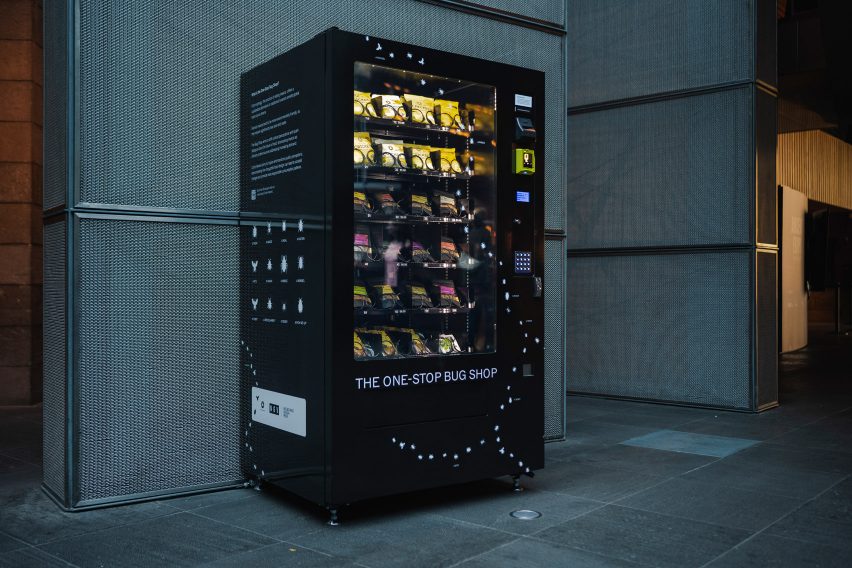
One-stop bug shop, by National Gallery of Victoria (NGV) and Circle Harvest
One-Stop Bug-Shop is a vending machine developed by NGV and Australia's first insect protein farm Circle Harvest to invite visitors to try out snacks made from insects.
These included cricket corn chips, as well as native Australian ingredients like lemon myrtle-seasoned mealworms and tangy Australian ants rock candy.
"One-Stop Bug Shop challenges dietary norms, inviting you to reconsider sustainable food options," said NGV.
"This novel vending machine not only offers snacks but also serves as a conduit for deeper understanding and appreciation of alternative protein sources."
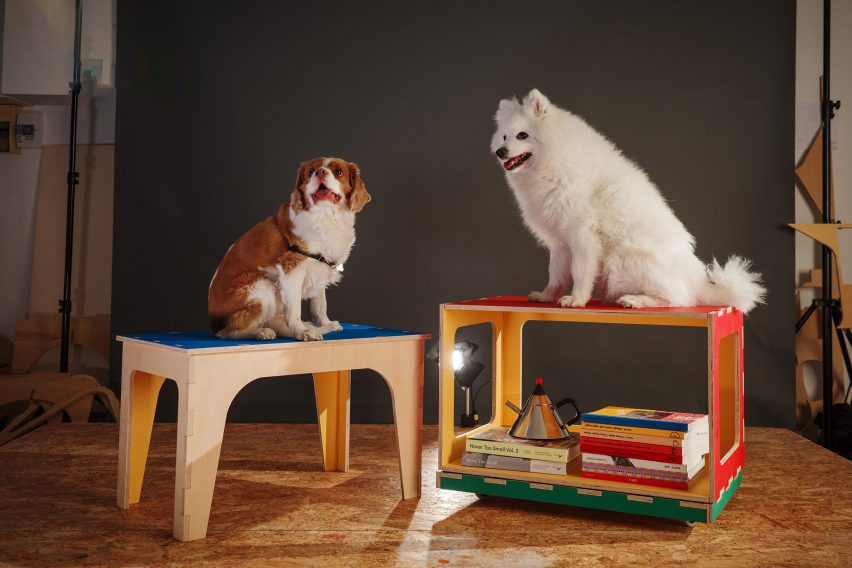
Pet furniture, by Never Too Small
Design media Never Too Small collaborated with 11 designers from around the world to design multifunctional pet furniture from a single piece of plywood.
The furniture, intended for compact living spaces, can double up as storage units, extra seating, shelves, or planters, in addition to serving as pet houses or beds.
According to the company, the smart design helps prolong the life of the often single-use pet furniture.
"In an era where many of us are transitioning to smaller, more compact homes, how can pet owners create a dedicated sanctuary for their pets while still making the most of available space?" asked Colin Chee, founder of Never Too Small.
"We want to explore pet housing concepts that seamlessly combines aesthetics, versatility, and affordability," he added.
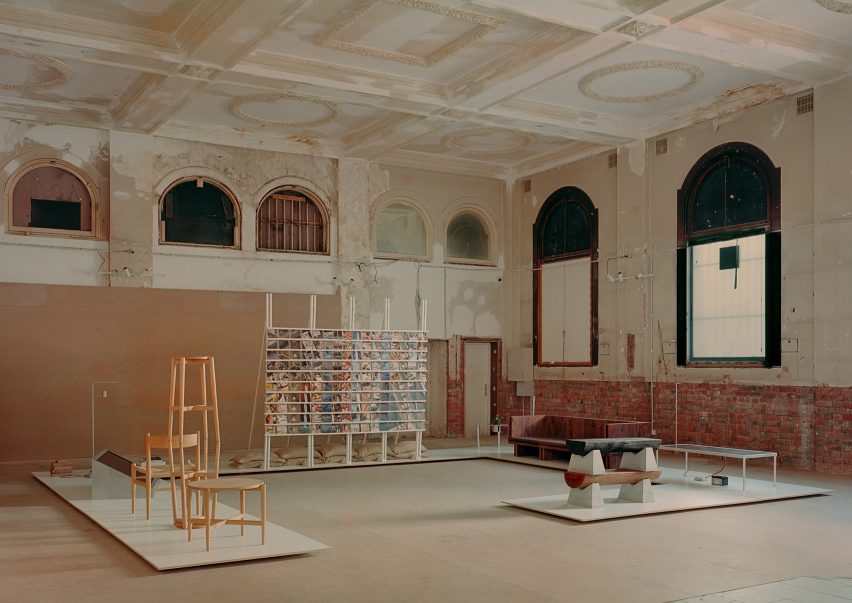
Call-out, by Do Works
Design studio Do Works presented seven pieces of furniture made by architecture studios across Australia in this group exhibition.
Named Call-out, the exhibition was located inside the former Union Bank at Prahran, Melbourne, a historical building designed in 1918 by architect Walter Richmond Butler.
"Call-out challenged architects to reflect on their own research practice through furniture in order to test new ideas, new forms, and new materials, especially at a time that architects are involved in a smaller proportion of new builds than ever before," Dalton Stewart, co-founder of Do Works, told Dezeen.
These included an intentionally flawed lamp by Nuud Studio that requires the user's assistance for the lamp to stand up and function, a bench made from decommissioned telegraph poles and concrete salvaged from construction sites across Brisbane by Five Mile Radius, and a coffee table combined with a USB-power-hub and reading light by Simulaa.
The table was fully powered by a solar panel that also serves as the table surface.
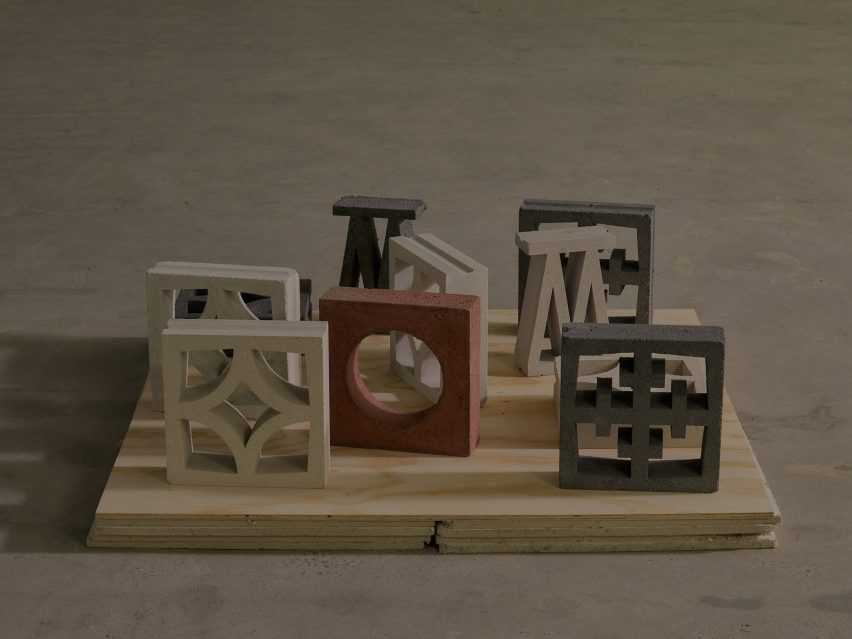
Material Matters 02, by BETA by STH BNK and Atelier
Material Matters 02 showcased innovative and sustainable materials including recycled and upcycled materials, bio-based resources, as well as the latest advancements in material science.
Among them was Bitsa Block, which is manufactured in Australia using processed industrial waste by Cubic Products in collaboration with a local soil treatment facility that embeds ash content in the processed waste to reduce toxic waste soil. As a result, Bitsa Block requires 30 per cent less cement than conventional blocks.
Also on show was furniture company Nordgröna's Reindeer Moss panel, which utilises a naturally grown material reindeer moss (natural lichen) handpicked in Scandinavia that it described as "a symbiosis between fungi and algae".
The renewable material features sound absorption properties and can also be used as a humidity indicator.
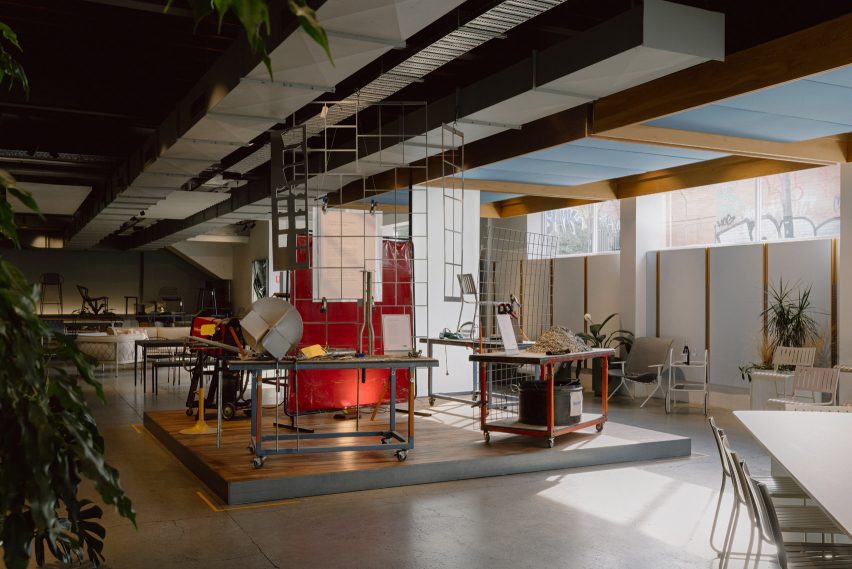
The Beauty and Persistence of Metal, by Tait
Australian outdoor furniture company Tait showcased the use of recycled aluminium in this exhibition, featuring the launch of Cycle chair and bar stool designed by industrial designer Adam Goodrum.
The chair was produced using a unique metal tube-bending machine imported from Japan. It was manufactured by Tait using recycled aluminium in existing stock, which the company claims contains up to 70 per cent recycled material and is endlessly recyclable.
The exhibition also demonstrated aluminium in its various forms throughout the recycling process, aiming to highlight the importance of material reuse and circularity in design.
Melbourne Design Week 2024 took place from 23 May to 2 June 2024. See our Dezeen Events Guide for information about other architecture and design exhibitions, installations and talks.